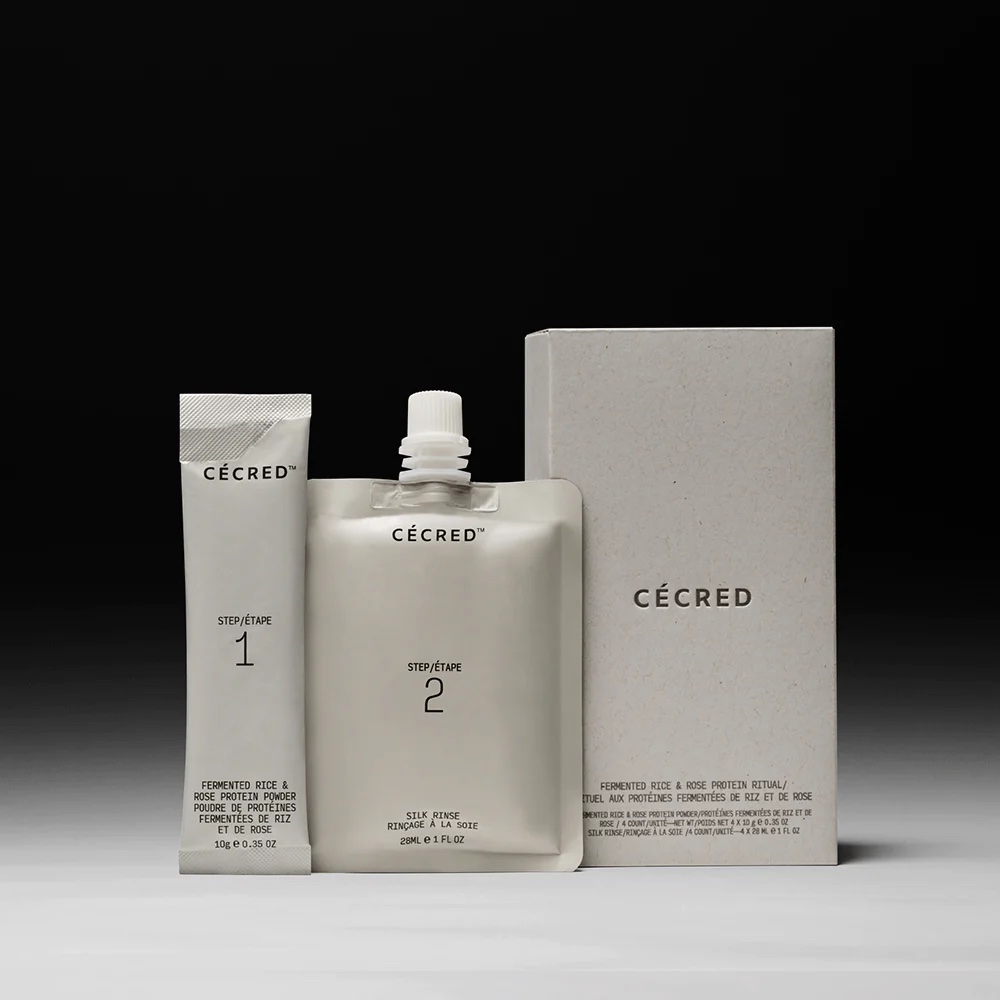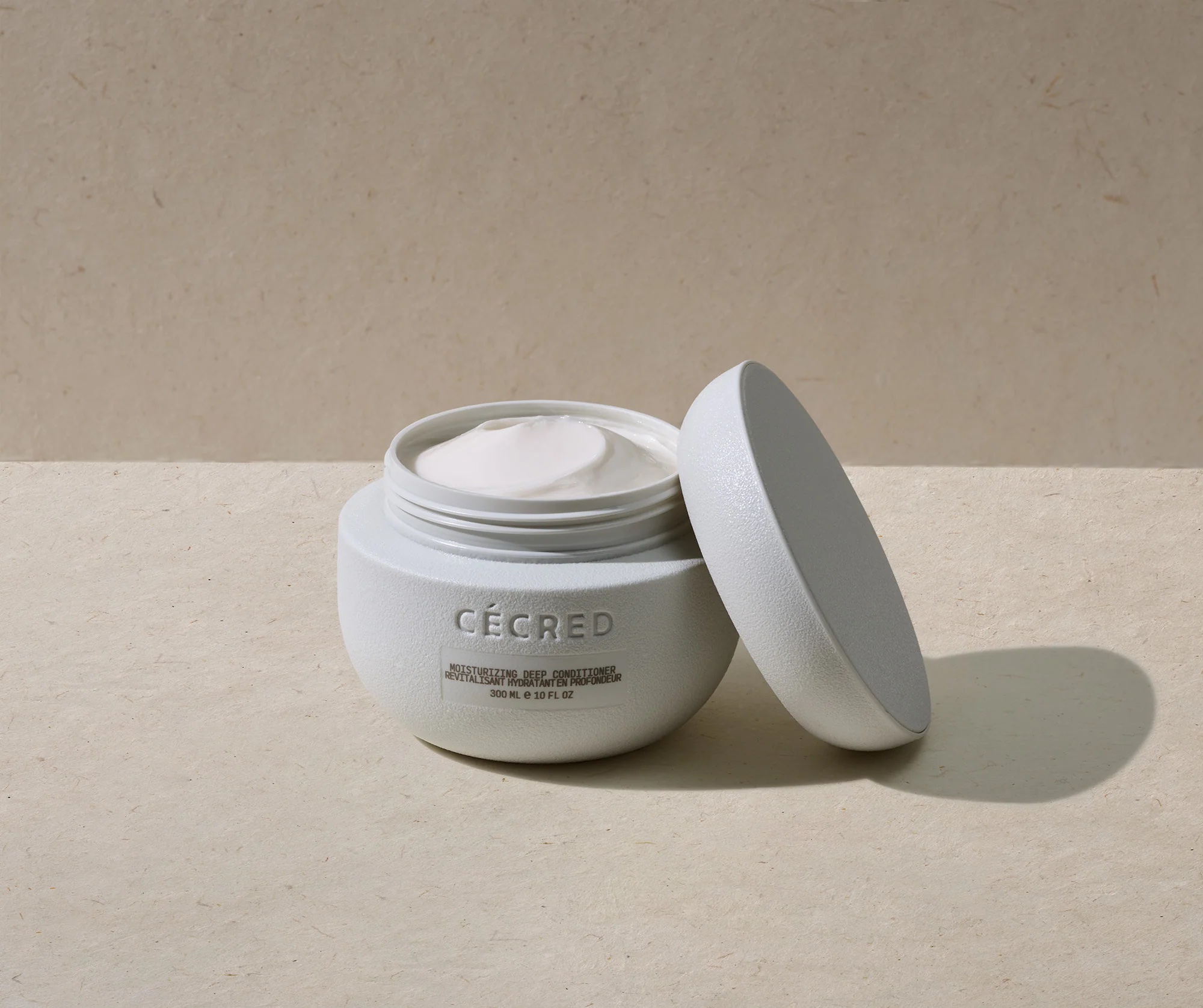Lifestyle
Beyoncé is launching her long-awaited Cécred hair care line, but is it really friendly to black hair? —We dig deep into the ingredients

Unafraid to reinvent herself or explore recent paths, Beyoncé continually shows us that Black women should unapologetically take up space, regardless of the arena. While casually announcing her upcoming country album, Beyoncé also expertly announced the launch of her recent hair care line, CÉCRED (pronounced “saint”).
Bey is no amateur when it comes to the hair care industry. Growing up, her mother, Tina Knowles, ran a successful beauty salon in Houston, Texas for years.
“I grew up sweeping hair in my mom’s living room. That’s where a lot of who I am comes from,” he says on the company’s website. “It has been my lifelong dream to create these hair products and put my mother’s teachings into practice.”

While there have been a number of expectations surrounding the line, there are others who wonder if this line is truly useful for black hair, especially since the masses only knew Bey when she rocked her iconic blonde extensions. Her real hair is rarely seen.
“I hope we collectively won’t immediately purchase products from an artist who has no knowledge of hair, but we are hesitant to pay for advice from licensed professionals. But that’s probably wishful thinking,” one of them said User X upon hearing about Beyoncé’s new venture.
“Have any BLACK people with 4C or thicker hair tried Beyoncé’s hair care routine? “I’m sorry, I just don’t believe that someone who barely shows their real hair to the world knows the secrets to effective hair care.” he said other.
In an interview with Essence, Bey shared the importance that science and research have played in the development of CÉCRED, stating“First I had to find the right team with the best experience, who also shared my beliefs. …We have made every effort to make decisions based on the results and the absolute best science. By having access to proven ingredients and creating our own patent-pending technology – we now have a line that works universally.”
CÉCRED’s marketing videos have also faced criticism because they depict individuals with different hair textures and praise how the product affects their hair, suggesting that it is a hair care brand for everybody.
While inclusivity is necessary, Beyoncé’s fan base of mostly black women who’ve followed her since Destiny’s Child feels each skeptical and alienated.
“Is the product intended for black hair or???” asked a fan on X.
“It’s Black History Month and they decide to highlight a non-Black influencer in a hair care line. “No one on the team said maybe we should wait until March to post this video and choose a black woman instead.” questioned other.
The reality is that black hair may require completely different products and ingredients than those most promoted to the masses. In a sea filled with “for everyone” hair products, Black consumers still struggle to find products that work for them. While we love supporting Black artists and types, it’s still necessary to do slightly research and never blindly buy a product, regardless of whose name is related to it.
So let’s take a more in-depth take a look at a few of CÉCRED’s most anticipated products and a few of their ingredients to determine whether or not they are friendly to black hair.
A ritual with fermented rice and rose protein

CÉCRED description: “A luxurious ritual made simple. This two-step ritual begins with a fermented rice and rose protein powder that immediately transforms into a water-activated, strengthening hair rinse, followed by a conditioning Silk Rinse rinse to balance softness and shine.
If you want to naturally regrow your hair after a big chop, fermented rice has long been considered a great product for healthy hair growth. Rice water is rich in antioxidants, which also help reduce scalp inflammation. This is especially beneficial during the winter months when our scalp tends to dry out.
Dr. Neil Sadick, popular celebrity dermatologist, reported to Refinery 29 that “rice proteins can strengthen hair strands and seal split ends.” This product will certainly appeal to all hair types and people with dry scalp.
In addition to strengthening hair, rice water has been proven to stimulate hair growth. Dr. Tiffany St. Bernard, PhD in biomedical engineering. and founder of HairDays, as reported by CNN This rice “Rice comes in many different types and contains a whole spectrum of nutrients, from vitamin B, vitamin C, potassium, magnesium, selenium, phosphorus, amino acids and more.” Amino acids are especially beneficial for hair growth because they are the building blocks of the proteins that make up hair.
Benefits of a ritual based on fermented rice and rose protein:
- Protection against hair breakage and loss
- Reduce dry, irritated scalp
- Promotes hair growth
Deeply moisturizing conditioner

CÉCRED DESCRIPTION: “Restore life to dry and dull hair. This incredibly rich formula contains our blend of African oils and shea butter to moisturize, soften and improve manageability.
This silicone-free deep conditioner contains a blend of African baobab, moringa and black seed oils and shea butter. The extraordinary amount of collagen found in baobab oil is said to improve hydration and elasticity and build keratin proteins that support hair growth. Many of us are already familiar with the health benefits of black seed oil, but this is a study found that it is also great for reducing hair loss.
The ingredient list also includes squalane, an oily substance naturally found in humans and plants. Squalane is found in many cosmetic moisturizers and conditioners and mimics the body’s natural ability to moisturize.
While many of the products on the CÉCRED website are designed for all hair types, this one is especially designed for girls with curly and curly hair, especially those whose hair needs deeper hydration and hydration.
Benefits of a deeply moisturizing conditioner
- Very moisturizing
- Revives dull hair
- Defines curls
Nourishing hair oil

CÉCRED description: “This blend of 13 oils—including sea buckthorn, baobab, moringa, black cumin, castor oil, sunflower seed, watermelon seed, olive, sweet almond, linseed, golden jojoba, argan and coconut—and plant extracts seals, moisturizes and adds soft, natural shine – all without silicone fillers.”
While Queen Bey may now have access to a team of hair gurus, professionals, and luxury products, there was a time when she struggled with psoriasis, a condition that causes “Patches of scaly and inflamed skin, most often on the scalp, elbows or knees, but may also affect other parts of the body.” To combat common hair problems, she also added a nourishing hair oil that soothes and moisturizes the scalp.
Trichologist Dr. Khushboo Garodia shared with Healthline.com that “Oil helps with scalp health. Gentle scalp massage helps in exfoliation and sometimes helps reduce hair loss.
This is another CÉCRED product that may be friendly to black hair if you have thicker hair or curlier hair, as curly hair is more willing to dry than other hair types. The company suggests that this oil is intended for people with “dry, dull, medium to thick hair who are looking for manageability and shine.”
Purifying shampoo and scalp peeling

CÉCRED description: “It’s like scalp care. This clarifying shampoo and scalp scrub combines a balance of exfoliants, fermented purple willow bark and tea tree oil to remove buildup and residue from the hair and scalp for a breakthrough and deep cleanse.
Ingredients in this clarifying shampoo and scalp scrub include fermented purple willow bark and tea tree oil, which remove build-up and residue from the hair and scalp for a game-changing deep cleanse. Purifying shampoos and scalp scrubs have many benefits.
Why do black women need a clarifying shampoo? Since we use several products in our daily and weekly styling, a good clarifying shampoo will remove residue from gel, excess oils, hairspray, edge control, curling creams, curling creams and more – leaving your hair clean, shiny, and soft. First of all, it brings relief to itchy scalp struggling with accumulated products.
Purple willow bark is essential in removing dead skin from the scalp. According to Grow great, purple willow bark “is essential for exfoliating the scalp, helping to remove dirt and product build-up from the scalp, and helping to move dead skin cells. Willow bark in hair products also helps control excess sebum on the scalp, leaving your strands healthy and balanced.
In addition to purple willow bark, the addition of tea tree oil makes this product a double threat for people who also suffer from dandruff or psoriasis. PubMed research results This “Tea tree oil contains anti-inflammatory compounds that emerging evidence suggests may be helpful in alleviating the symptoms of psoriasis.”
Benefits of a cleansing shampoo and scalp peeling
- Scalp peeling
- Removes product residue
- Neutralizes the effects of hard water
By incorporating science into her vision to make CÉCRED a reality, Beyoné seems to be making it clear that she wants this beauty line to change into a everlasting a part of her customers’ hair care routines. For those on the lookout for the best products to promote healthy roots and beautiful curls in a world obsessive about the final look versus what it takes to achieve it, CÉCRED could also be value considering.
These are just a few of the offers that customers can count on. Check out the full lineup at cecred.com.
Lifestyle
Celebrating Stevie Wonder’s 75th birthday with his greatest hits

On May 13, 1950, the star was born in Saginaw, Michigan and it was no person aside from Stevland Hardaway Judkins, often called Stevie Wonder. Stevie is a music genius that delighted tens of millions of individuals with his incredibly beautiful catalog of songs. Black company He selected 13 from Stevie’s crucial songs to have a good time the sound of an actual master and motown sound. Stevie Wonder is a legend.
Happy birthday to the true one.
He throws me off my feet
“Knocking Me Off My Feet” fell in 1976 to the legendary album Stevie, is a jazz love song, which is perfectly useful that he feels someone, looks like someone.
Golden Lady
“Golden Lady” appeared on the stage in 1973 on the album Stevie. This song is a smooth romantic number that flies under the radar. This is certainly one of Stevie’s most sleeping love songs.
If you actually love me
“If you really love me” appeared in 1971 on the album Stevie ,. It defines a key moment in his profession, through which Stevie’s sound becomes a function. The song strikes in another way whenever you realize that he finds the voice.
Part -time lover
So “Lover part -time” appeared in 1985 on the album Stevie. This is a really perfect mixture of classic Motown Vibrations with the shiny production of the 80s synthesizer. “A lover of part -time employed” has a melody that lives in your head for a lot of days.
Lately
“Recently” fell in 1980 as a part of the Stevie Wonder album. It is such a harsh, painful ballad that somebody you’re keen on slowly drains away. Stevie really pours his heart and vocal to this. It is so boomed you could feel any ounce of pain in his voice.
This time in my life
“For For Fer My Life” fell in 1968 on an album of the identical title. This is a sincere love anthem through which someone finally finds his person. It is performed with harsh emotions and soul and may easily give listeners goose bumps.
Signed, sealed, delivered (I’m yours)
“Signed, sealed, delivered (I’m Yours)” fell in 1970 on the album Stevie “SIGNTED, Sealed & Delived”. This song is value adding to your playlist. He is energetic and catchy. Stevie co -produced the song.
Master Blaster (Jammin)
“Master Blaster (Jammin ‘)” debuted in 1980 on the album Stevie Wonder. “This is a superb tribute to Bob Marley with this unique Stevie Wonder Groove Ombudn.
Superstition
Stevie abandoned “Superstition” in 1972. Stevie doesn’t stop and offers funk and soul without effort.
Is she not wonderful
“Not She She Lovely” dropped in 1976 as a part of the masterful album Stevie Wonder The Song Is Dedicated to his daughter Aisha And he’s entwined with a spiritual, characteristic game of Stevie harmonica. Stevie balances technical brilliance with harsh emotional honesty. This is unquestionably certainly one of those timeless gems.
Don’t worry about something
“Don’t You Carth” Bout a Think “fell on the album in 1973. It has a Latin jazz atmosphere that makes you must move, in addition to these funny lyrics that may make you smile in your face. The whole song is largely a musical hug. It’s like a small pocket of the sun from the 70s, which never gets old.
You did nothing
Oh wounds, “You Doted Nothin” “got here to the stage in 1974. He was hidden in Stevie Wonder’s absolutely good album. Why would you switch it? Well, this can be a splendidly funny political statement that Stevie directed straight to the Nixon administration during your entire Watergate mess. Cherry upstairs? He led Jackson 5 to borrow them harmonies in spare vocals. This is Vintage 70. Protest music from Groove, which still appears to be current.
Happy birthday
Stevie abandoned “Happy Birthday” in 1981 on his album. He wrote it to press MLK on his birthday to change into a national holiday. Stevie is clever in how he mixed the climate with social activism, carrying a serious message about equality. MLK Day finally became official in 1983.
(Tagstranslate) Celebrity Birthdays
Lifestyle
Why do the demographic boom stay in their homes vs. Auxiliary life
reports that the housing crisis can To be Brewing as a demographic boom Collect their houses and refuse MOVEW financially bored residential facilities.
Meredith Whitney, a financial analyst, said that the generation of the boom of demographic houses maintains hard -earned houses, because moving to residential assistance is equally expensive. During the interview, Whitney emphasized that some older Americans are attached to money and borrowing towards their homes. Forty -four percent of home equity loans are charged by seniors, which they call “contradictory”. “It’s crazy, right?” She preserved.
Whitney’s points of view are significantly different from the standard narrative that the majority of the demographic boom is financially secure and sits on money flaws. This shall be true because seniors constitute 42% of all houses buyers in comparison with generations who constitute 29%. “I divide it into various cohorts,” said Whitney.
“So a senior who everyone thinks that” demographic booms have all this money ” – this is a small part. Seniors live withdrawals for payment. ”
The generation collectively has 75 trillion usd wealth. However, Whitney, also sometimes called “Oracle of Wall Street”, which provided for a incredible financial crisis, estimated that only one in 10 seniors can afford to assist in maintaining help, forcing many to stay in their homes with a mortgage surplus.
As a result, the rates created the “block” effect, described as when the owners of the house who got to the market at low rates, hesitate to purchase recent houses, bearing in mind today’s increased loan costs. “This is one of the problems with housing inventory,” said Whitney during the interview. “They stop longer in their homes because they can’t afford to move out.”
The weight is just not only on the demographic boom. Their thousand -year -old and generation X got stuck in an inaccessible long -term address aging parents. Because the elders not have funds for long -term care, in response to subsequent generations they typically leave work or work less to supply care. Social insurance experts Name it “victim” which could potentially hurt them Financially at present and in the future. “The bigger problem is that you can create almost a series of poverty,” said professor Gerontology at the University of Massachusetts Boston, Marc Cohen.
“This is not something that simply sticks to one generation. The costs are socially incurred.”
The Harvard Center for Housing Studies 2023 report confirmed that private long -term care, like helpful communities and healthcare, is beyond the reach of the average middle class citizen. Less than 15% of Americans 75 and older people living alone in the primary American cities could afford to pay for help in the field of help or healthcare without immersing in their savings. The federal government may not have much help, because Trump’s administration focuses on Medicare, a government medical insurance program for the elderly.
Medicare also doesn’t include most long -term healthcare.
(Tagstranslat) demographic boom house
Lifestyle
Will the southern accent repair disappear in some parts of the south of the USA?
Growing up in Atlanta in the Forties and Fifties, Susan Levine’s visits to relatives in New York embraced the star of improvised news: her cousin invited friends and accused 25 cents for pop to be conscious of Levine’s southern accent.
Although furthermore they grew up in Atlanta, two sons Levine, born over 1 / 4 of a century after her, never talked to an accent, which could thoroughly be the most famous regional dialect in the United States, with elongated vowels and soft sounds “R”.
“My accent does not exist,” said Ira Levine, her eldest son. “The people I work with and even at school, people did not believe that I was from Atlanta.”
The southern accent, which has many sorts, disappears in some areas of the South, when people migrate to the region from other parts of the USA and around the world. A series of research articles published in December documented a discount in a regional accent amongst black residents of the Atlanta area, white people from the working class in the region of New Orleans and other individuals who grew up in Raleigh, North Carolina.
Has over 5.8 million people He moved to the south of the USA Until now, in the Nineteen Twenties, the sum of three other regions of the country is larger than 4 times. Linguists don’t imagine that mass media have played an infinite role in changing the language, which normally begins in urban areas and radiate to more rural places.
At the end of the twentieth century, the increase in migration affects the accents
The classic white southern accent in the Atlanta region and other parts of the urban south reached the peak of demographic growth born in 1946–1964 Gen Xers Born in 1965–1980 and subsequent generations, largely because of the huge migration of people in the second half of the twentieth century.
He was replaced amongst the youngest speakers in the twenty first century of the dialect, which was first noticed in California in the late Eighties, in accordance with the last studies of the Linguists from the University of Georgia, Georgia Tech and Brigham Young University. This dialect, which was also detected in Canada, became a regional accent since it spread to other parts of the US, including Boston, New York and Michigan, contributing to reducing their regional accents.
In Raleigh, North Carolina, the trigger point in the fall of the southern accent was the opening in 1959 of the research park, an infinite complex of research and technology corporations that attracted tens of 1000’s of highly educated employees from outside the South. White residents born after 1979, the generation after establishing a research triangle, normally don’t confer with the southern accent, the linguist Sean Lundergan wrote in an article published in December.
Often, external people wrongly associate the southern accent with an absence of education, and some younger people can try to distance themselves from this stereotype.
“Today’s young people, especially educated young people, do not want to sound too much, as if they came from a specific city,” said Linguist Georgia Tech, Lelia Glass, who co-author of the study in Atlanta. “They want to sound more mobile, unlocal and geographically.”
The accents change in younger people
Southern Dialect amongst blacks in Atlanta has fallen in recent an prolonged time mainly because of the influx of African Americans from northern cities, including “Reverse great migration.”
During great migration, from around 1910 to 1970, African Americans from the South moved to cities in the north like New York, Detroit and Chicago. Their grandchildren and great -grandchildren moved back south in large places to such places corresponding to Atlanta at the turn of the twentieth and early twenty first century and shall be more often educated in college.
Scientists found southern accents amongst African Americans who were dropped Gen Z.or people born in 1997–2012, in accordance with the study published in December. The same researchers had previously studied southern accents amongst white people in Atlanta.
Michelle and Richard Beck, General Xers living in the Atlanta region, have southern accents, but she lacks in their two sons born in 1998 and 2001.
“I think they speak more clearly than me,” said Richard Beck about his sons, a law enforcement officer. “They don’t sound like a country like me when it comes to the southern draw.”
The “Yat” accent of the recent Orleans has decreased
Unlike other accents which have modified because of the influx of recent residents, the characteristic, white accent “YAT” of the working class in New Hurricane Katrina In 2005, the accent differs from other regional accents in the south and sometimes described as they sound like Brooklynes and southern.
Hurricane was a “catastrophic” event of a language change for New Orleans, because he resettled only a number of quarter of 1,000,000 inhabitants in the first 12 months after a storm and brought tens of 1000’s of people from outside in the next decade.
Reducing the “Yat” accent is most noticeable in millennia, who were teenagers when Katrina hit because they were exposed to other ways of speaking at a key moment of language development, said Katie Carmichael Virginia Tech, Katie Carmichael.
Cheryl Wilson Lanier, a 64-year-old who grew up in Chalmette, Louisiana, one of the suburbs of New Orleans, where the accent was the most widespread, worries that part of the uniqueness of the region shall be lost if the accent disappears.
“It’s a bit like we are losing our separate personality,” she said.

Changing the southern identity
Although it decreases in many urban areas, the southern accent is unlikely to disappear completely, because “accents are an extremely simple way to show something to other people about ourselves,” said Linguist at the University of Georgia Margaret Renwick, one of the authors of research in Atlanta.
Instead, it’d reflect a change in how younger speakers perceive southern identity, with a regional accent not so closely related to what’s considered southern as in previous generations, and language boundaries less obligatory than other elements.
“So young people in the Atlanta or Raleigh area have a different vision of what life in the south is,” said Renwick. “And it’s not the same as the one with which their parents or grandparents grew up.”
(Tagstranslate) @AP
-

 Press Release1 year ago
Press Release1 year agoU.S.-Africa Chamber of Commerce Appoints Robert Alexander of 360WiseMedia as Board Director
-

 Press Release1 year ago
Press Release1 year agoCEO of 360WiSE Launches Mentorship Program in Overtown Miami FL
-

 Business and Finance11 months ago
Business and Finance11 months agoThe Importance of Owning Your Distribution Media Platform
-

 Business and Finance1 year ago
Business and Finance1 year ago360Wise Media and McDonald’s NY Tri-State Owner Operators Celebrate Success of “Faces of Black History” Campaign with Over 2 Million Event Visits
-

 Ben Crump1 year ago
Ben Crump1 year agoAnother lawsuit accuses Google of bias against Black minority employees
-

 Theater1 year ago
Theater1 year agoTelling the story of the Apollo Theater
-

 Ben Crump1 year ago
Ben Crump1 year agoHenrietta Lacks’ family members reach an agreement after her cells undergo advanced medical tests
-

 Ben Crump1 year ago
Ben Crump1 year agoThe families of George Floyd and Daunte Wright hold an emotional press conference in Minneapolis
-

 Theater1 year ago
Theater1 year agoApplications open for the 2020-2021 Soul Producing National Black Theater residency – Black Theater Matters
-

 Theater11 months ago
Theater11 months agoCultural icon Apollo Theater sets new goals on the occasion of its 85th anniversary








